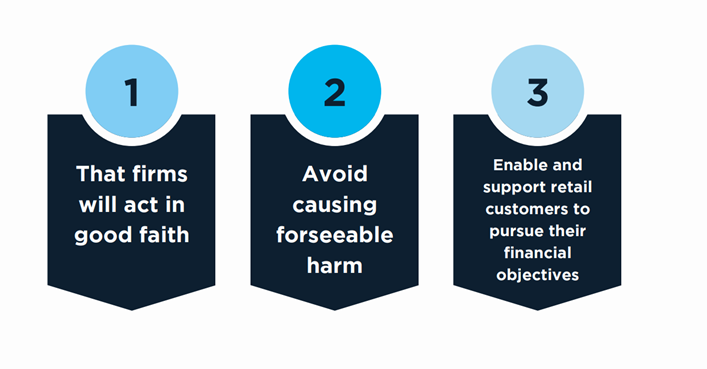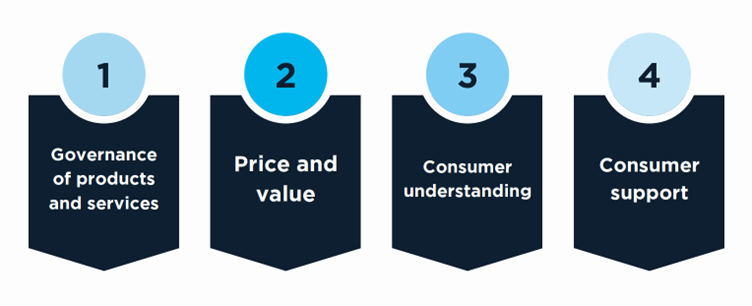Consumer Duty
The FCA’s new Consumer Duty sets clearer and higher standards of consumer protection across financial services and requires firms to put their customers’ needs first by delivering good outcomes.
fscom is supporting clients by offering a range of services and programme accelerators to help financial services firms meet their obligations and help them protect their customers.
Webinar
From “Vulnerable Customers” to the new “Consumer Duty”: what does the FCA expect of payment and e-money institutions?
fscom’s Director Alison Donnelly is joined by a panel of experts for a robust discussion.
What is the Consumer Duty?
The Consumer Duty (‘the Duty’) sets the standard of care that firms should give to customers in retail financial markets. The Duty takes the form of a new principle, principle 12, which is added to the Principles for Businesses (PRIN): “A firm must act to deliver good outcomes for retail customers”. Complementing the new principle, there are ‘cross-cutting rules’ and ‘four outcomes’ rules and guidance. The cross-cutting rules are grouped around three expectations: The remaining rules and guidance aim to achieve good outcomes for customers in four areas that represent key elements of the firm-consumer relationship:
The remaining rules and guidance aim to achieve good outcomes for customers in four areas that represent key elements of the firm-consumer relationship:

Book your free consultation with one of our Consumer Duty experts today.
To whom does the Consumer Duty apply?
The Duty applies to the regulated activities and ancillary activities of all firms authorised under the Financial Services and Markets Act 2000 (FSMA), the Payment Services Regulations 2017 (PSRs) and Electronic Money Regulations 2011 (EMRs), in respect of products and services for prospective and actual retail customers.
Each firm is responsible for its own compliance, but the FCA has accounted for the impact that manufacturers of products and services may have on retail end-users, even where there is no direct contractual relationship, and so there are obligations on manufacturers to the extent of their influence.
How far has the payments sector come in implementing Consumer Duty? Read more here.
What are firms expected to do?
Firms must consider how customers and prospective customers are impacted by their business, and review the culture, strategy, processes and controls of governance, price and value, consumer understanding and consumer support.
Implementation plans should have been approved by the end of October 2022. On 31 July 2023, New Consumer Duty rules came into force for new and existing products or services open to sales or renewals. On 31 July 2024, rules come to force for closed products and services.
We are supporting clients by offering a range of services and programme accelerators to help financial services firms meet their obligations on time and help them protect their customers.
How can we help?
-
Consumer Duty Healthcheck
- Conduct a review of your consumer duty implementation plan, identifying any issues in relation to your proposed approach or ability to meet the deadline.
- Provide assurance to the Board with report and recommendations.
-
Consumer Duty Implementation Support
- A dedicated subject matter expert delivers one or more sub-projects from your implementation plan.
- Key project deliverables will be agreed in advance.
-
Consumer Duty Interim Support
- A dedicated subject matter expert joins your implementation working group on a fixed term basis, attending meetings, contributing expert advice on the application and implementation of the Duty and providing support on the delivery of the plan.
- A retainer of support will be agreed in advance.


Greg James
Senior Manager
On demand insights and resources
Webinar, Podcasts and Resources
Get started today
If you are looking for highly qualified compliance experts to help prepare your firm for the impending 31 July 2024 deadline, contact us today for a free confidential consultation.





